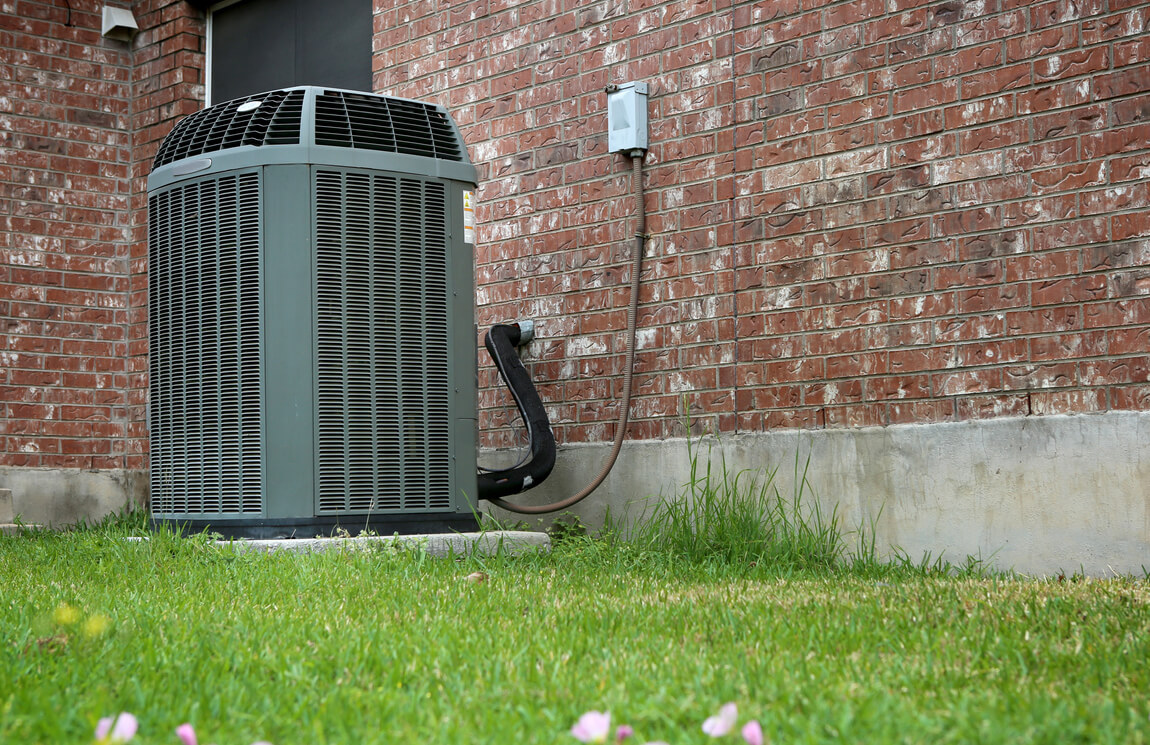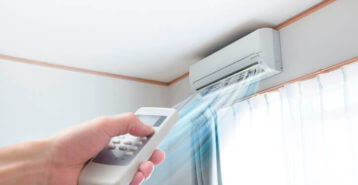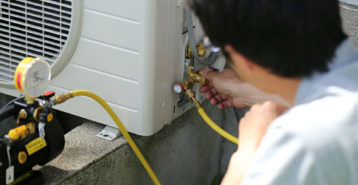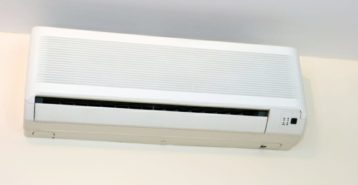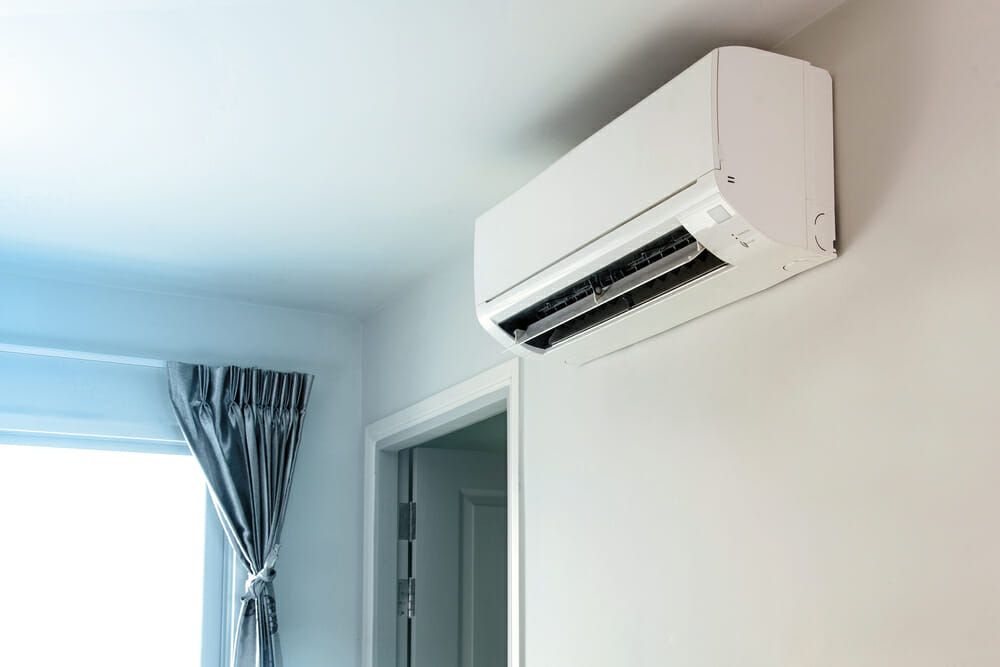AC Replacement Costs: What to Know
Installing a new central AC unit is one of the most effective ways to boost your home’s comfort during hot months, but it’s also a major investment. Understanding your central AC unit costs upfront can help you budget wisely and avoid unexpected expenses. In this guide, we’ll break down replacement and installation prices, what factors affect them, and how to save money on your project. Whether you’re replacing an old system or installing one for the first time, here’s what to expect.
How Much Does a New AC Unit Cost?
The national average for installing a new AC unit is about $13,000. That price includes the unit itself plus necessary labor, but your AC replacement cost does not include the cost of any ductwork necessary to accommodate the system.
If your home already has ductwork in place, you might not need to have it serviced. But many older homes don’t have ductwork needed for central air conditioning. Depending on the size of your home, you can expect to pay about $4,000 on top of the cost of the unit itself.
From industry data and other sources, ductwork cost typically adds:
- Homes under 1,500 sq. ft. will cost between $2,000 and $4,000
- Homes between 1,500 and 2,000 sq. ft. will cost between $2,500 and $6,500
- Homes over 2,500 sq. ft. will cost between $6,000 and $10,000
Cost by Unit Size
Installing central AC in your home will vary based on the type of system you’re installing, its size and power. AC units are typically rated by their tonnage, which is a measurement of their cooling power. One ton of cooling power equals 12,000 British Thermal Units per hour, or BTUs. Tonnage is not the only factor affecting the cost of an AC unit; the brand, your location and the features of the particular unit will also play a role. But on average, central AC unit cost will cost between $2,800 and $8,800 for units ranging from 2 to 5 tons.
| AC Size | Cooling Capacity (BTUs) | Home Size (sq. ft.) | Estimated Installation Cost |
|---|---|---|---|
| 1.5 tons | 18,000 BTUs | Up to 1,200 | $2,500 - $3,500 |
| 2 tons | 24,000 BTUs | 1,200 - 1,500 | $2,800 - $4,000 |
| 2.5 tons | 30,000 BTUs | 1,500 - 1,800 | $3,000 - $4,500 |
| 3 tons | 36,000 BTUs | 1,800 - 2,100 | $3,500 - $5,000 |
| 3.5 tons | 42,000 BTUs | 2,100 - 2,400 | $3,800 - $5,500 |
| 4 tons | 48,000 BTUs | 2,400 - 2,700 | $4,000 - $6,000 |
| 5 tons | 60,000 BTUs | Up to 3,000 | $4,500 - $7,500 |
In short, less powerful models from less expensive brands will cost far less than high-end models, but mid-range options exist.
- Low-End Costs: $3,500 to $5,000
- Mid-Range Costs: $5,000 to $7,500
- High-End Costs: $7,500 to $10,000+
Average Central AC Unit Cost by SEER Rating
When deciding what is a good price for a central air conditioner, it helps to look at SEER ratings. The Seasonal Energy Efficiency Ratio measures how efficient the system is. The higher the SEER rating, the higher the initial install price. The benefit of a higher SEER rating is that over time, a more energy efficient system will help you save on long-term energy costs.
Here’s what you can expect to pay based on SEER rating:
- 13 to 14 SEER: Entry-level units with the lowest upfront cost. Installation averages about $3,000.
- 16 SEER: A popular mid-range option that balances efficiency and price. Installation averages about $4,500.
- 18 SEER: Higher efficiency with more savings over time. Installation averages about $5,500.
- 20 SEER and up: These are the most efficient systems available. Installation costs start at $7,000 and go up.
Higher SEER levels can help reduce monthly energy bills, especially in warmer climates or larger homes where your AC system runs frequently.
AC Unit Cost by U.S. State
Your location in the United States will affect the price of AC units in your area as well as the availability of various brands. In addition, labor costs vary widely depending on the local market and the cost for specialized workers in your area. See the table below for costs.
| State | Average Cost ($) | With Ductwork ($) | State Ceiling Cost ($) |
|---|---|---|---|
| CA | 16,900 | 20,900 | 43,095 |
| CO | 18,395 | 22,395 | 46,324 |
| IL | 16,380 | 20,380 | 34,130 |
| IN | 17,355 | 21,355 | 38,351 |
| MA | 17,355 | 21,355 | 75,956 |
| NC | 17,615 | 21,615 | 67,865 |
| NJ | 14,105 | 18,105 | 44,125 |
| TX | 13,455 | 17,455 | 45,728 |
| VA | 16,055 | 20,055 | 38,903 |
| WA | 17,355 | 21,355 | 48,813 |
Looking For Costs Specific to Your City?
Modernize is building out guides to AC replacement cost by city so you can find the information that’s most applicable to you. You can read our guides to:
- Air conditioning replacement cost in Austin, TX
- Air conditioning replacement cost in Houston, TX
- Air conditioning replacement cost in Phoenix, AZ
- Air conditioning replacement cost in Miami, FL
- Air conditioning replacement cost in Atlanta, GA
Check back soon for more cities!
Central AC Unit Cost by Brand
The AC brand you choose also affects your total cost. Some brands focus on affordability, while others prioritize performance, longevity, and advanced technology.
Here’s a breakdown by brand type:
- Affordable and Reliable: Brands like Goodman, Rheem, and York offer solid performance at a starting price of around $3,000. They’re a great fit for smaller homes or budget-conscious upgrades.
- Premium and Efficient: Brands such as Trane, Carrier, and American Standard start around $5,000 and go up depending on SEER rating and system size. These units tend to offer better long-term value with quieter operation and smart home integration.
Additional Central AC Unit Costs
Keep in mind that replacing your AC unit could come with additional costs that aren’t included in your initial quotes. Before signing a contract, ask your contractor whether the following items are included:
- Permits and Inspections: Some cities require a permit and inspection to ensure your system meets local building codes. This can cost anywhere from $200 to $500.
- Ductwork Evaluation or Replacement: If your home has old, leaky, or insufficient ductwork, you may need repairs or a full replacement. This can add $4,000 or more.
- Furnace Compatibility: If your AC connects to your furnace, you might need a compatible upgrade.
- Environmental Hazards: Older homes often have asbestos or lead paint, which require testing and removal.
- Electrical Upgrades: Homes with outdated electrical panels might need upgrades to handle the demands of a new AC system. Expect to pay $1,000 to $3,000 if needed.
Long-Term Cost Considerations
Factoring in HVAC maintenance and efficiency-related costs can help you better plan for long-term value, not just installation.
- Annual Maintenance: Regular tune-ups costing $100 to $300 will keep your system running efficiently and extend its lifespan.
- Energy Usage: Higher SEER-rated systems may cost more upfront, but they often pay off with lower monthly energy bills.
- Smart Thermostat or Add-Ons: Smart thermostats or zoning systems can improve efficiency for an added price.
- Warranty Upgrades: Some brands offer extended warranties at an added cost for parts and labor coverage.
If you want the best long-term return on your investment, don’t forget to factor these into your total central AC unit costs.
DIY vs. Professional Installation
When considering how to manage your central AC unit costs, it might be tempting to explore a DIY options. But, installing central air is a complex process that involves electrical wiring, refrigerant handling, and compliance with local building codes. Unless you have professional HVAC experience, DIY installation is generally not recommended.
Why Professional Installation Is the Better Choice
Hiring a licensed HVAC contractor ensures the system is installed safely, correctly, and up to code. Mistakes during a DIY installation can lead to inefficient cooling, system breakdowns, and even voided warranties. This will ultimately drive up your central AC replacement costs. Professionals know how to:
- Properly size the unit for your home
- Install electrical and refrigerant lines
- Optimize ductwork connections if needed
- Handle required permits and inspections
While you’ll pay more upfront for professional help, it protects your investment and ensures your AC system runs efficiently from day one — saving you time, stress, and costly repairs down the road.
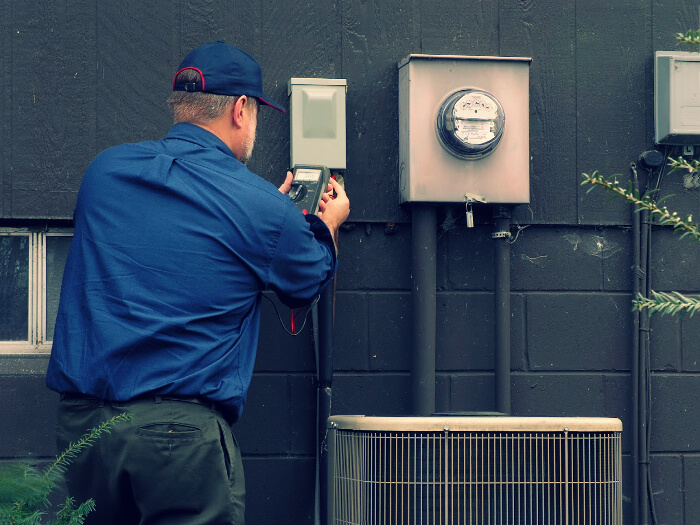
How to Save on Central AC Installation
Looking to lower installation costs? Smart planning and a few strategic choices can help you stay on budget with an efficient system that keeps your home comfortable.
Here are some ways to reduce your overall costs:
- Get Multiple Quotes: Compare pricing and services from at least three licensed HVAC contractors to find the best value.
- Check for Rebates and Incentives: Many utility companies and manufacturers offer rebates or tax credits for energy-efficient AC systems.
- Install During the Off-Season: Schedule installation for spring or fall when demand is lower and contractors offer off-peak discounts.
- Choose a Mid-Range SEER Rating: A mid-level SEER rating can offer energy savings without the high upfront cost of a top-tier unit.
- Keep Up With Maintenance: Regular tune-ups keep your system running efficiently, reducing the chance of costly repairs.
- Upgrade Ductwork Only If Needed: Have your contractor inspect existing ductwork before replacing it. If it’s still in good shape, you can avoid an unnecessary expense.
Stay Cool Without Breaking the Bank
A new air conditioning system can improve your home’s value and help you save on energy bills all while keeping you cool. Deciding which unit to install starts with a solid understanding of the associated costs. With this information in mind, you’ll be able to choose a brand, unit type and SEER rating that aligns with your needs and budget. Our HVAC calculator can help you get started. From there, you’ll need to choose a trusted local professional to get the job done with our locator tools.
Compare top-rated HVAC pros in your area.
Read real homeowner reviews, explore qualifications, and view promotions. Modernize makes it easy to browse professionals and find one that will be perfect for your project.
